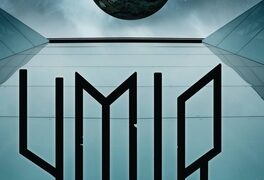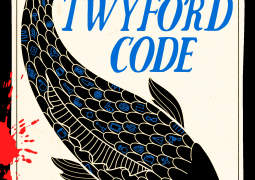 The Maidens by Alex Michaelides
The Maidens by Alex Michaelides
My rating: 2/5 cats


i have put off writing this review since reading the ARC back in MARCH because i didn’t want to poop on anyone else’s pre-release anticipation with my less-than-glowing reaction, but now that it’s been out for a bit, i’m gonna let my poop out, too. stand back.
i didn’t get around to reading The Silent Patient until The Great Lockdown of 2020, and it was just the twistyfun distraction i needed from the world, so when i heard that his follow-up was going to be a campus thriller involving seeeeecret societies, classical mythology, and a sinister professor, my The Secret History-loving self was SO EXCITED, and the marketing campaign leading up to its release kindled alla my dark delicious anticipation.
and yet.
it’s just…look, i hate being that guy, but it’s just not very good. i’m pretty reasonable about managing my expectations when it comes to summertime psych-suspense thrillery books; they don’t gotta be art, they just need to hold my interest and maybe throw a surprise or two my way.
escapist entertainment is fine, but i don’t like being insulted, and that’s what this felt like.
QUICKPLOT: mariana is a psychotherapist specializing in group therapy who is still hard-grieving the drowning-death of her beloved husband the previous year. she reluctantly returns to the memory-saturated college campus where their love story began to console her niece/adopted daughter-figure zoe after her best friend tara is found murdered. zoe suspects one of the professors of killing tara, and, encouraged by her former mentor, mariana decides to stick around and do some amateur sleuthing, during which time more girls are murdered. meanwhile, mariana is being low-key stalked by one of her patients from back home, and she meets a younger man who claims to be psychic and is convinced they have a romantic future together, because visions.
my first gripe was with the structure. each chapter is about three pages long, which speeds up the pace and prevents the reader from becoming fully immersed in the story—we’re just skimmed along through the plot points at a pace seemingly designed to camouflage the fact that there’s no development happening; that this is more like an outline of a mystery novel than one fully-realized.
the immersion problem is made worse by the frequent insertions of psych-stuff; these clinical asides breaking up the flow:
Accompanying the housekeeper on shopping trips to the crowded and frenetic market in the center of Athens always made Mariana nervous. And she was relieved, and a little surprised, to return home unscathed. Large groups continued to intimidate her as she grew older. At school, she found herself on the sidelines, feeling as if she din’t fit in with her classmates. And this feeling of not fitting in was hard to shake. Years later, in therapy, she came to understand that the schoolyard was simply a macrocosm of the family unit: meaning her uneasiness was less about the here and now—less about the schoolyard itself, or the market in Athens, or any other group in which she might find herself—and more to do with the family in which she grew up, and the lonely house she grew up in.
on the very next page:
Mariana grew up with a keen awareness of [her mother’s] loss. As a therapist, she knew a baby’s first sense of self comes through its parents’ gaze. We are born being watched—our parents’ expressions, what we see reflected in the mirror of their eyes, determines how we see ourselves. Mariana had lost her mother’s gaze—and her father, well, he found it hard to look at her directly.
i have a problem with that inserted “well,” voice-wise, but the bigger problem is the decision to develop a character thru psych 101 notes. it’s…inelegant. i understand that she’s a therapist and what she does is bound to inform who she is (which again opens up that whole can of worms re: voice), but these details just don’t work in chapters this short; they’re not well-integrated into the story, they distance the reader from the character and there’s no opportunity to settle back in before we’re off to the next chapter.
in fact, a lot of this book feels like the author is shoehorning in details from his own personal cache of ‘stuff he knows about,’ without regard for their narrative utility: psychotherapy, the beauty of the greek islands, greek mythology, the greek language. these recurring motifs take up a lot of real estate at the expense of other story elements, like character development, and they don’t do much to enhance the larger story.
because here’s what’s not in his personal cache of ‘stuff he knows about:’ creating believable characters.
NONE of the characters are believable, every interaction is fraught, written as though accompanied by a very intense and cheesy b-movie musical score, everyone all sticky with malice and foreboding.
suspend all disbelief, ye who enter here.
so. zoe believes professor edward fosca killed tara, claiming that they were having an affair and that, when tara threatened to expose their relationship, fosca threatened her right back and hours later, she turned up dead.
edward fosca is a byronically handsome american professor specializing in greek tragedies (natch) who seems to only teach the prettiest girls on campus; several confident, intelligent girls known as the maidens who have formed a tight-knit little secret society based on the persephone myth, and whose education is frequently conducted by fosca in private sessions featuring drugs and alcohol and wild parties but it’s not a harem at all, oh no, he’s just the light these 20-year-old girlmoths collectively named after virginal ingenues gravitate towards and it’s all perfectly normal academia. tara was one of the maidens, but neither fosca nor any of the other young women except zoe seem especially broken up over her death. to contrast grief-responses: mariana is clutching and weeping over her dead spouse’s sneakers fourteen months after his death, but an inner-circle maiden dies and the next day these ladies are just fine and dandy, cool and snarky.
now, you may well ask yourself why no one would give a little wait, what? about a female-student-collecting prof drinking behind closed doors with all these pretty little maidens, or find the optics of professor mcdreamy striding across campus trailed by an entourage of girls in flowy white dresses on their way to a memorial service…ill-advised?
no objections at all, because on this campus, *shrug*, that’s just how students learn. when mariana was matriculating, she developed a relationship with her (female) advisor that continues to the present-day, but began with the same kind of boundary-blurring:
Most of the teaching…was done on a one-to-one basis, between fellow and student, usually taking place in the fellow’s rooms. At any time after midday, or even earlier, at the discretion of the fellow concerned, alcohol was invariably served…providing an education in drinking as well as literature.
It also meant that tutorials took on a more personal flavor, and lines between teacher and pupil became blurred—confidences were given, and intimacies exchanged.
speaking of exchanged intimacies, View Spoiler »
mariana may understand that sometimes teachers and students drink together in private rooms and that’s a totally normal part of the education process, but she trusts zoe’s instincts about fosca’s guilt, and he’s certainly not acting unshady.
cue dialogue:
“I can see you have cast me as the villain—a predator preying on my vulnerable students. Except now you’re met these young ladies, you can see there’s nothing vulnerable about them. Nothing untoward happens at these meetings—it’s just a small study group, discussing poetry, enjoying wine and intellectual debate.”
“Except now one of those girls is dead.”
Professor Fosca frowned. There was an unmistakable flash of anger in his eyes. He stared at her. “Do you think you can see inside my soul?”
Mariana looked away, embarrassed by the question. “No, of course not. I didn’t mean—”
“Forget it.” He took another drag of his cigarette, all anger apparently gone. “The word ‘psychotherapist,’ as you know, comes from the Greek ‘psyche,’, meaning ‘soul,’ and ‘therapeia,’ meaning ‘healing.’ Are you a healer of souls? Will you heal mine?”
“No. Only you can do that.”
Fosca dropped his cigarette onto the path. He ground it into the earth with his foot. “You’re determined to dislike me. I don’t know why.”
i am determined to dislike them both because of how poorly they are written. that dialogue—yeesh. it’s contrived and melodramatic and just bad. “Do you think you can see inside my soul?” really, michaelides? and then the old tonal switcheroo from melodrama to etymological mansplaining her profession to her? you can practically see the red-pen arrow promising “authentic dialogue TK.”
mariana is why we can’t have nice things in the ‘strong female character’ department. i get that she’s raw and marinating in grief, borderline hysterical with nostalgia and (figurative) ghosts, but she’s impossible to root for. she does not come across as the intelligent, educated woman we are assured she is. while she’s able to spew chonks of textbook psych-evaluations about those around her, they come across as reflexive; knee-jerk assessments without any real insight into human behavior. she’s in a perma-fog, she responds emotionally in every situation, she misreads every room. she’s a poorly drawn caricature: the grieving widow/meddling sleuth that all the men fall for even though it wasn’t until sebaaaaastian that she ever felt beautiful blah blah blah.
anyway, the guy she thinks is a murderer invites her to dinner at his place and she accepts:
Fosca smiled. “Good…My rooms, at eight? And one more thing—”
Before she could stop him, he leaned forward—
And he kissed her on the lips.
It only lasted a second. By the time Mariana could react, he had already pulled back.
Fosca turned and went through the open gate. Mariana heard him whistling as he walked away.
She brushed away the kiss with her fist.
How dare he?
She felt as if she had been assaulted—attacked; and that he had won somehow, succeeded in wrong-footing, intimidating her.
what on earth was that? that And one more thing— like he’s a predatory columbo.

it’s a power move out of a gothic melodrama, complete with the wilting female victim, and whistling? really? that whole scene is so…silly.
okay, that covers structure and characters, so i guess plot is next?
mariana’s involvement in this investigation beggars belief. she is asked by her former advisor to assist in the investigation because 1) she is a group therapist, and the school is like a group, and 2) she used to go to the school. neither of these are qualifications for murder-solving, an elderly professor has no authority to deputize her onto the case, and mariana has a conflict of interest cluttering up her tunnel-vision, but no matter—she agrees and begins conducting her own interviews with various parties, slipping into the deceased’s room and pawing through her stuff, hiding in shadows and spying on students and tagging zoe in on her amateur sleuthery, against the protestations of the actual police, whose case she is most definitely compromising. in fact, on page 73 the chief inspector attached to the case tells her to keep out of the investigation, which warning comes before she’s even begun her actual snooping. mariana’s dubious contributions to the investigation are superfluous—the authorities have already called in a renowned forensic psychologist to consult—a man with whom mariana is acquainted, who light-flirts with her and allows her to sit in on his suspect interviews. because all of this is how things work.
i suppose we’re meant to see this ignoring-police-mandates stance as plucky? determined? but she stumbles over clues and evidence on her merrily misguided crusade without looping in the people who actually know what they’re doing until you just wanna shake her.
where i lost my mind was when mariana is led to the location of the murder weapon by a non-police person, and it doesn’t even occur to her to object when they remove it from its hidey-hole. i know she’s not a professional with a responsibility to preserve evidence, but oh we just allow people to grab murder weapons now, do we? mariana? COME ON, MARIANA!
but the real issue i had was with the reveal of whodunnit and why. the motive is dumb, the whole unfurled scope of the murder plot even dumber; an overcomplicated rube goldberg machine built on interlocking assumptions, wishful predictions, and magical thinking from a wholly unqualified strategist. there are at least five things about it that MAKE NO SENSE and the whole thing left me spluttering with outrage.
seriously, ____ (proper noun) killed ___(pronoun) ______ (all-caps noun, two words) even though the whole reason for the murder was moot? you don’t countermand that plan and find a different way?
and ____ (proper noun) didn’t recognize ANYTHING from ____’s (proper noun) life in that ___ (noun)? presumably, before ____ (proper noun) went all ______ (disparaging slang), they’d ______ (verb, past tense) about their _____ (noun, plural)?? no?
and ____ (proper noun) waited _____ (period of time) before deciding to get ____(adjective)? and ____(verb, past tense) _______ (proper noun) for (noun)? even though _____ (series of facts we are told at the beginning that contradict motive and some math that may or may not be accurate?????????????)
and don’t get me started on the psychic love-interest.
“I have a gift for that sort of thing, you know—runs in my family—foresight, premonitions. I see things others do not.”
so, he’s psychic enough to see the future when it involves cartoon bubble-hearts, but he doesn’t see ____ (proper noun) ___ (gerund) on the ____ (noun) as he ____ (verb, present tense) by, either IRL or in a vision? a psychic character is silly enough, a psychic character with so many blind-spots is narratively purposeless.
and THEN—there’s a nice little The Silent Patient connection, but he ruins the moment by bashing the reader over the head with it a couple more times to make sure we noticed, lessening the effect of the shared world, and it left me with the same bad-taste reaction as the similarly-shaped ending of Split, which tie-in-reveal is the only cool thing in an otherwise terrible film.
the idea of a group therapist investigating a man who has nurtured a little cultlike group around him is rich with possibility, and the juxtaposition between fosca’s ladygroup with henry in mariana’s therapy group was so promising:
As soon as any group establishes itself, it always arouses envy and attack—and not just from forces on the outside, those excluded from the group, but also from dark and dangerous forces within the group itself.
but the execution is so weak—subplots fizzle out, lackluster red herrings (henry-ings?) are dropped unexplored in order to deliver the most ridiculous explanation of all time with no regard for the tradition of fair play in mystery novels.
i could do this all day—i haven’t even touched upon the postcards, or the on-the-nose focus on revenge tragedies, but i’ve already gone on so long here that i’m running out of review-space, despite cutting out so many tirade-tangents i don’t even know if what’s left of the review makes sense anymore, and i’ve spent so much time rereading chunks of the book to make sure i’m not missing anything that makes the book make sense, and i’m just getting hot and cranky and i want this to be over.
this book is getting a lot of positive reviews, and i’m happy for those readers who enjoyed it, but i can’t help wondering if maybe the ARC-version i read went through extensive revisions before its final draft because what i read doesn’t feel like the product of a three-years-writing-and-revising follow-up to a runaway-success debut novel.
The Secret History? more like weak-ret history.

*********************************
got a postcard in the mail yesterday…

directing me to a website with this message:

and i cannot wait. three cheers for intriguing marketing strategies!
read my book reviews on goodreads







